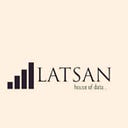Governance is a system by which entities are directed and controlled, It is concerned with structure and processes of making decision, accountability, control and behavior at the top of an entity. Governance influences how an organization's objectives are set and achieved i.e DAO, how risk is monitored and how it will be addressed.
Governance is also a system and process i.e not a single activity and therefore successful implementation of a good governance strategy requires a systematic approach that incorporates strategic planning, risk management and performance management which is a core component of the unique characteristics of a successful organization.
Companies and governing bodies are centralized in nature hence there are governed by a leader, however blockchain is decentralized in nature and it is an essential digital ledger for recording transactions that is duplicated and distributed across the entire network of computer systems. Each block in the chain contains a number of transactions, and every time a new transaction occurs on the blockchain, a record of that transaction is added to every participant’s ledger. The decentralized database managed by multiple participants is known as Distributed Ledger Technology (DLT).
Governance can be categorized into two: On-chain Governance and Off-chain Governance. Off-chain Governance is centralize in nature.
Blockchain is decentralize therefore the On-chain Governance should be adopted by covalent where the latest entry in the blockchain governance structures and explicitly created for blockchain, unlike other Off-Chain methods, the On-Chain governance method offers some fascinating, promising, yet polarizing concepts into the game which can be optimized as per the specific requirement of a network, the node operators’ becomes utterly unnecessary since they just have to follow the on-chain process. This makes default decisions powerful and provides a higher chance to avoid a hard fork.
The transparency regarding information in the On-Chain system is much better than what is offered in Off-Chain governance. Since users are involved as well, various proposals for development and voting now open happen in the open i.e $CQT holders. Any important, but a necessary decision like the decision to reduce the block reward will be proposed and get run through the voting from $CQT holders with complete transparency.
In conclusion, The governance token offers more opportunities to users to effectively involve the community in the decision-making process.
Governance also facilitates users to actively bring changes to smart contracts, for example If a group attacks the blockchain project’s ledger and steals funds, or performs a malicious activity, users and developers are not forced to fork to a different network. They can simply vote to revert the mess, and after majority agreed, developers will have the full right to implement the necessary changes.
